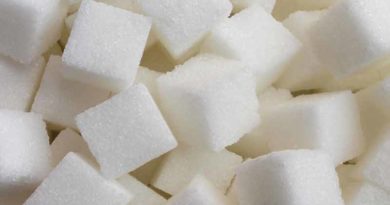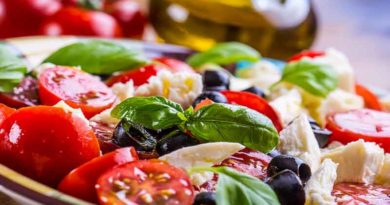Now 10-a-day Supplemental
Further to this post, one of the most interesting findings of this recent study was that individual fruits and vegetables and various categories of fruits and vegetables randomly seemed to help or not help different conditions.
In the following table, I have taken the findings from Tables 2-6 in the paper – for CHD, stroke, CVD, Cancer and all-cause mortality – and shared whether or not the findings were statistically significant (Y or N). I have then loosely used the term ‘helped’ where there was a statistically significant difference and “didn’t help’ where there was no statistically significant difference. (The * indicates where this particular item or category was not contained in the table for that condition).
Does this make sense to you? Either certain fruits and veg have magic properties or they don’t. How can we claim fruit and veg are healthy with these random results?!
| Table 2 | Table 3 | Table 4 | Table 5 | Table 6 | (* = Not In Table) | |
| Significant Difference? | CHD | Stroke | CVD | Cancer | All-cause mortality | Comments |
| Apples, pears | Y | Y | Y | * | Y | Apples & pears help |
| Bananas | N | * | * | * | N | Bananas don’t |
| Berries | N | N | N | * | Y | Berries help mortality but not the rest |
| Citrus Fruits | Y | Y | Y | N | Y | Citrus fruits help – but not cancer |
| Dried Fruits | N | N | N | N | * | Dried fruits don’t help |
| Fruit juice | Y | Y | N | N | Y | But fruit juice (sometimes) does! |
| Grapes | N | N | N | * | * | Don’t bring grapes to hospital |
| Allium vegetables | N | N | * | * | N | Garlic/onions etc… |
| Onions | N | * | * | N | N | … don’t help |
| Cruciferous veg | N | N | N | Y | Y | Cancer & dying helped but nothing cardio |
| Non-cruciferous veg | * | * | Y | N | N | Cancer & dying NOT helped but cardio is |
| Green leafy veg | Y | Y | Y | N | Y | Helps, but not with cancer |
| Potatoes | N | N | N | N | Y | Spuds help mortality but not the rest |
| Tomatoes | N | N | N | N | * | Not the wonder food they’re claimed to be |
| Beta carotene rich F&V | Y | * | N | * | * | CHD yes, CVD no? How does that work? |
| Vit C rich F&V | Y | * | N | * | * | As above |
| Raw F&V | N | * | N | * | Y | Even raw food ain’t that good |
| Root veg | * | N | * | * | N | Root veg does nothing… |
| Carrots | * | * | Y | * | * | …but carrots help with CVD? |
| Tinned fruit | * | * | Y (adverse) | N | Y (adverse) | Tinned fruit doesn’t help or may harm? |
| Broccoli | * | * | N | N | * | Don’t bother with broccoli |
| Pickled veg | * | Y | * | N | * | Pickled veg for stroke, but not cancer |
| Salads | * | * | * | N | Y | Not much helps with cancer full stop! |





Here’s another “correlation does not equate to causation” study:
http://www.livescience.com/58210-stroke-heart-failure-linked-to-marijuana.html
This couldn’t possibly have anything to do with marijuana users diet or lack of exercise (no one ever dealt with the munchies by eating steak and salad) could it? It must be the illegal (at the time) drugs. And of course, people who indulge in illegal recreational pharmaceuticals (or non-pharmaceuticals) live perfect healthy lives all the time.
The reason I’m posting this, is because it’s yet another example of Bad Science(tm) which seems to be endemic these days, and not just limited to nutritional studies.
Hi Hugh
You’ll enjoy these! http://www.tylervigen.com/spurious-correlations
Best wishes – Zoe
Isn’t one of the main problems with this study is that most (or all?) of the underlying research is based upon Food Frequency Questionnaires?
From reading this table, it would appear that eating only apples, pears, citrus fruits and leafy green vegetables is of much benefit to our health!
Hi Carol
Indeed! However, it sill doesn’t address my view that F&V intake is a MARKER of health, not a MAKER of health. It could be that healthy people happen to eat those things – not that those things make people healthy!
Best wishes – Zoe
I don’t know whether to laugh or cry about nutritional “science”!
My degree was in mathematical physics. Physics has several comprehensive Theories (in the scientific sense of “Theory”). Before you can claim a new particle exists, the convention is “5 sigma”; a bit different from nutritional claims! Good studies that contradict existing Theories are taken seriously by many (perhaps younger) scientists, because they may mean we need a paradigm shift. (Although as Max Planck said: “science advances one funeral at a time”!)
A good scientist shouldn’t look at the above variety of results and simply average them out. The differences and disagreements are features to be explained, perhaps leading to new paradigms, and not simply be dismissed. It may be the difference between getting one more publication, and getting the Nobel Prize!
Rant over!
This is a little bit on-topic here, and much more on-topic for this website:
“A Novel Intervention Including Individualized Nutritional Recommendations Reduces Hemoglobin A1c Level, Medication Use, and Weight in Type 2 Diabetes”
http://diabetes.jmir.org/article/viewFile/diabetes_v2i1e5/2
I expect you are on first-name terms with some of the authors! (I’m a fan of Dr Sarah Hallberg. If I had such problems, I would very happy to have her as my doctor).
Hi Barry
Many thanks for this ‘hot off the press’ – I do know many of these people. I have yet to have the pleasure of meeting Sarah, but we have a mutual friend in Nina Teicholz so one day!
Best wishes – Zoe
Interesting. But it’ll get buried because of this paragraph:
_We evaluated whether individuals with T2D could be taught by either on-site group or remote means to sustain adequate carbohydrate restriction to achieve nutritional ketosis as part of a comprehensive intervention, thereby improving glycemic control, decreasing medication use, and allowing clinically relevant weight loss_
“decreasing medication use” is not in the game plan. /snark.
Having said that, this is a real winner:
_Baseline HbA1c level was 7.6% (SD 1.5%) and only 52/262 (19.8%) participants had an HbA1c level of <6.5%. After 10 weeks, HbA1c level was reduced by 1.0% (SD 1.1%; 95% CI 0.9% to 1.1%, P<.001), and the percentage of individuals with an HbA1c level of <6.5% increased to 56.1% (147/262). _
They saw a substantial decrease in HbA1c — 7.6% to 6.4% is a drop in average BG from around 170mg/dl to around 140mg/dl which would make a huge difference in outcome over time.
I wonder how long the potential for reversing type-2 diabetes by dietary means can be hidden?
There are books on the subject; self-help groups in on-line forums; etc.
Now there is this:
https://www.virtahealth.com/
These people have serious intentions: “We are on a Mission to Reverse Type 2 Diabetes in 100 Million People” (by 2025).
http://blog.virtahealth.com/we-are-on-a-mission-to-reverse-type-2-diabetes/
Obviously they are not the only ones helping people do this. But I’ve never seen any other organisation set an ambitious target like that. Their team is basically the set of authors of the paper I cited above. (Not a coincidence!)
https://www.virtahealth.com/team
From the study
“The brief duration of this initial study cannot predict the long-term outcomes or sustainability of the
nutrition recommendations used by the Virta Clinic”
I can show you studies that show the same, if not better results, using HCLF macrobiotic diets.
Like these
http://medicc.org/mediccreview/articles/mr_119.pdf
Ma-Pi 2 Macrobiotic Diet Intervention in Adults with Type 2 Diabetes Mellitus
https://www.ncbi.nlm.nih.gov/pmc/articles/PMC3477773/pdf/JNUME2012-856342.pdf
Medium- and Short-Term Interventions with Ma-Pi 2 Macrobiotic Diet in Type 2 Diabetic Adults of Bauta, Havana
http://onlinelibrary.wiley.com/doi/10.1002/dmrr.2519/pdf
Ma-Pi 2 macrobiotic diet and type 2 diabetes mellitus: pooled analysis of short-term intervention
studies
https://www.ncbi.nlm.nih.gov/pmc/articles/PMC4190933/
The effect of the macrobiotic Ma-Pi 2 diet vs. the recommended diet in the management of type 2 diabetes: the randomized controlled MADIAB trial
https://www.ncbi.nlm.nih.gov/pmc/articles/PMC5022142/
A 6-month follow-up study of the randomized controlled Ma-Pi macrobiotic dietary intervention (MADIAB trial) in type 2 diabetes
https://www.ncbi.nlm.nih.gov/pmc/articles/PMC4379741/
The effect of macrobiotic Ma-Pi 2 diet on systemic inflammation in patients with type 2 diabetes: a post hoc analysis of the MADIAB trial
Your thoughts
Apologies for the tardy approval – this ended up in spam as it had so many links.
Watch Sarah Hallberg’s TEDx Talk https://www.youtube.com/watch?v=da1vvigy5tQ to see how ridiculous it is for a diabetic person with a compromised ability to produce adequate insulin for controlling their blood sugar levels to be eating high levels of carbs, thereby raising their blood sugar levels & increasing their need for injected insulin.